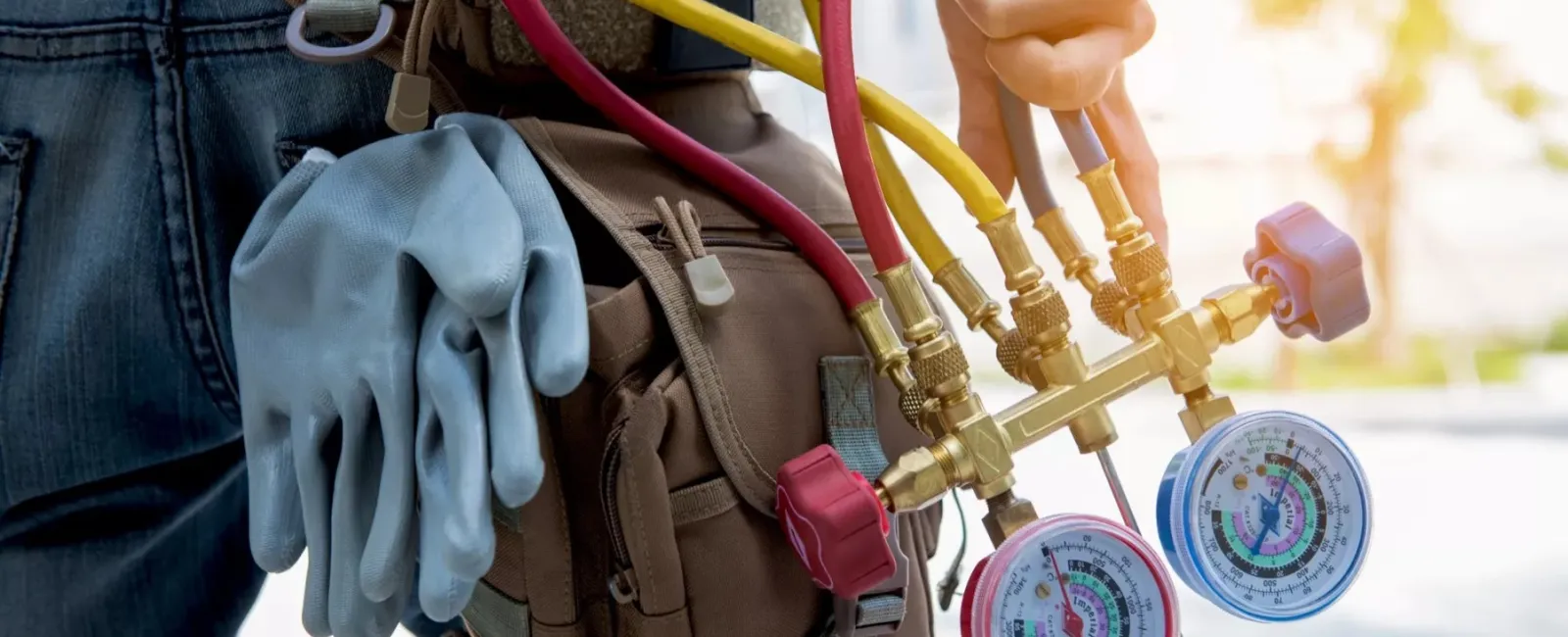You've noticed a trend in your home: you turn on your air conditioner, and soon after, you're sneezing and experiencing an allergy attack. Given the relationship between those two events, it makes sense that many people would start to suspect their air conditioner is putting something in the air that they're allergic to.
While that assumption isn't entirely accurate, the impact of your air conditioner on your allergies isn't quite that simple. To help clear up the common misconceptions of air conditioning and allergies, we've rounded up answers to some of our customers' common questions below.
Can My Air Conditioner Cause Allergies?
While your air conditioner may seem to be the guilty party when your allergies flare up inside your home, the air conditioner itself is not causing your allergies. Instead, it's simply failing to protect from outside allergens that should be filtered out before entering your home.

Air conditioners are equipped with air filters that, when properly installed and changed on the recommended schedule, will remove a high percentage of allergens and other particulates out of the air being blown into your home. The air conditioner itself is also not designed to produce any chemicals or airborne additives that would trigger an allergic reaction.
But when air conditioners aren't properly cared for, they can both allow certain allergens into your home, and become a breeding ground for allergens on its own.
Can You Be Allergic to Air Conditioning?
While air conditioning can't trigger an allergic reaction by itself—because the cooling process doesn't add anything extra to the air—it's very possible that your allergies may be worse when the air conditioning is on. This can make it seem like you're allergic to air conditioning itself.
But the pairing of your allergies with air conditioning is more a matter of correlation than causation. As explained above, air conditioning can make allergies worse if it's bringing allergens from outside into your indoor environment. Dirty filters and inadequate A/C maintenance can increase your exposure to pollen, mold, dust and other allergens—the air conditioning itself is not the culprit. By properly cleaning and maintaining your A/C unit, your allergies should be spared an unpleasant reaction when the A/C turns on.
Is Air Conditioning Good for Allergies?
While a poorly maintained air conditioner can agitate your allergies and trigger allergic reactions, a cared for and clean A/C unit can actually improve your indoor air quality and reduce the risk of allergic reactions. This is because the air filter in your A/C unit can clean incoming air of some of the common airborne allergens.
Pollen and mold from the outside air is filtered out before the air enters your home, and a clean A/C unit won't be a risk of sending mold spores, dust and other unwanted pollutants into your air. In an ideal scenario, air conditioning is good for your allergies, and good for your indoor air quality as a whole.
Tips for Air Conditioner Allergy Relief
Even if your air conditioner isn't directly causing your allergies, you still need to find a way to enjoy indoor temperature control without provoking an allergy attack.
- Replace air conditioner filters regularly. Most air filters are designed to be replaced either every month or every three months. Regardless of the life expectancy of your air filter, check it every month and, if visible debris has accumulated on the filter, replace it with a clean one.
- Have your A/C unit cleaned by an HVAC specialist. A regular tuneup from an HVAC technician will clean out standing water, mold and dust from your A/C unit, reducing the risk of allergens from your air conditioner entering your home.
- Use allergen-specific air filters if you're particularly sensitive to outdoor allergens. While you can't buy an air conditioner for allergy sufferers, you can upgrade your existing unit's allergy defense by installing a better air filter into the unit. An air filter with a MERV rating of at least eight will filter out many airborne particles known to case an allergic reaction. While these thicker air filters increase the workload on your A/C unit—and could increase your energy bills—it's often a small price to pay in exchange for cleaner indoor air.
- Don't forget about your home's ducts and vents. In some homes, your air conditioning may be flaring up your allergies because it's kicking up allergens in your ductwork. Dust, pet dander, and other allergens can get blown into your home's interior, triggering an allergic reaction. You can prevent this by having your home's ductwork regularly vacuumed out.
If you're having an allergic reaction to your air conditioning, an HVAC specialist can likely identify the problem and help you get it fixed. Don't settle for sneezing and wheezing every time the air turns on—contact an expert today to diagnose the underlying cause.

